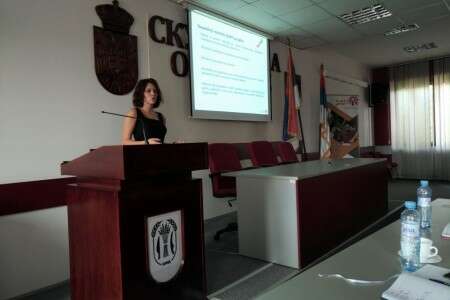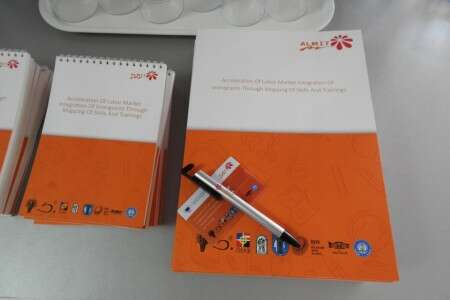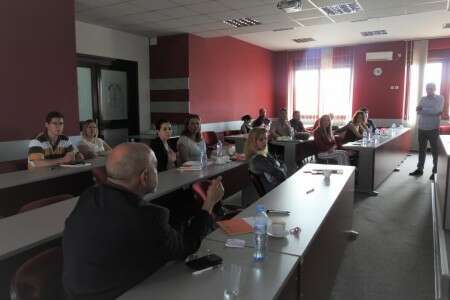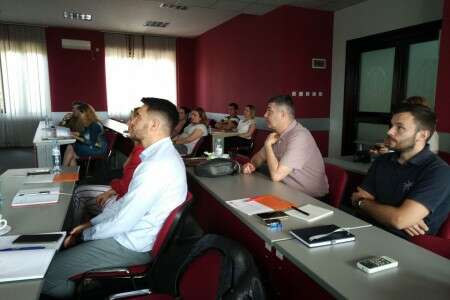The fourth meeting of the National Advisory Board within the project ALMIT - Acceleration Of Labour Market Integration Of Immigrants Through Mapping Of Skills And Trainings was held on June 11 in Šid. The meeting was attended by members of the project team, as well as representatives of the Commissariat for Refugees of the Republic of Serbia the Center for Social Work Sid, the Municipality of Sid, the Sid Health Center, the Red Cross, Sava Šumanović High School and enterprise "Standard" Sid.
The members of the project team presented the goals of the project, as well as the results and activities planned for the next period. Nebojša Ilić, an assistant to the president of the Municipality of Sid, emphasized the importance of cooperation between the non-governmental sector and schools in order to improve educational activities for adult learners from the migrant population. In addition, he presented examples of good practice from European countries that have successfully employed migrants with higher education or occupations that were in high demand in the labor markets. Jovan Komlenac, a psychologist at the Sava Shumanović High School, spoke about the social inclusion of children in formal education as an important part of integration and adult migrants in local communities. Also, the participants of the meeting discussed how the migrant situation differs in different European countries, but also in some of the local communities in Serbia.
In the following period, project activities will include career guidance and counseling workshops with participants currently residing in asylum centers in Serbia, as well as meetings with local entrepreneurs and organizations working with the migrant population.
ALMIT - Acceleration Of Labour Market Integration Of Immigrants Through Mapping Of Skills And Trainings project aims to find ways to facilitate the integration of migrants into the labor market and during the project, will be piloted several trainings of Serbian language, and civic and intercultural skills sessions. This project is funded by the European Union Programme for Employment and Social Innovation (EaSI).




